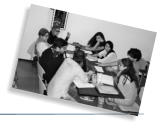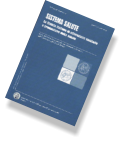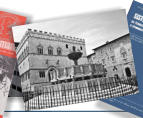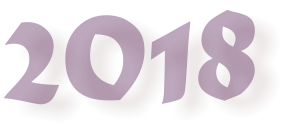








VOLUME 62, N°3 LUGLIO-SETTEMBRE



EDITORIA






Centro Sperimentale per la Promozione della Salute e l’Educazione Sanitaria






(Telefono: 075.585-7357/8036 - *Email: centro.cespes@unipg.it
Via del Giochetto, n°6 - 06126 - Perugia, Italia
Piazzale Severi,1 - 06132 -Perugia, Italia

Un’indagine su come i genitori percepiscono l’attività di educazione sanitaria dei pediatri
di famiglia
An investigation on how parents see the health education activity of primary care pediatricians
Pio Russo Krauss1, Lisa Maione2
1 Medico igienista, Responsabile Educazione Sanitaria Azienda Sanitaria Locale Napoli 1 Centro
2 Dietista, Azienda Sanitaria Locale Napoli 1 Centro
Parole chiave: educazione sanitaria, rapporto medico-paziente, comunicazione medico-paziente,
assistenza sanitaria di base
RIASSUNTO
L’educazione sanitaria è uno dei principali compiti del pediatra di libera scelta. È utile conoscere
come i genitori dei bambini assistiti dai pediatri percepiscono tale attività. Per questo motivo sono
stati intervistati 400 genitori di bambini di età compresa tra 2 e 14 anni, per indagare se i pediatri
dell’ASL di Napoli danno consigli di educazione sanitaria, in che modo lo fanno e come tale
attività è recepita. Le dichiarazioni dei genitori dipingono un quadro piuttosto critico: il 45%
afferma che il pediatra non chiede mai se il bambino la mattina fa colazione, il 28% che non
consiglia quante porzioni di frutta e verdura assumere al giorno, il 35% che non chiede se il
bambino si lava i denti, il 62% che non dà consigli su come lavare i denti e il 37% che non ha
chiesto se sono fumatori; pochi dichiarano di avere trovato materiale informativo di educazione
sanitaria nell’ambulatorio e che il pediatra utilizza alcuni accorgimenti per rendere la
comunicazione più efficace.
Keywords: paediatrician, health education, doctor-patient relationship, doctor-patient
comunication, primary care
SUMMARY
Health education is one of the main tasks of primary care pediatricians. It is useful to know how
the parents of children assisted by pediatricians perceive such activity. For this reason, 400
parents of children between 2-14 years old were interviewed to investigate whether pediatricians
in Naples give advice on health education, how they do it, and how this activity is perceived by
mothers. Parents' statements paint a very critical situation: 45% of parents claim that the
pediatrician never asks if the baby is having breakfast in the morning, 28% that he does not
recommend how many portions of fruit and vegetables the children should intake every day, 35%
that he does not ask if the baby brushes his teeth, 62% states that he did not give advice on how
to brush their children's teeth and 37% that he did not ask if they are smokers. Very few parents
say that they have found communicative material on health education in the ambulatory and it
emerges that the pediatrician does not make use of means of effective communication.
Autore per corrispondenza: piorussokrauss@tiscali.it



